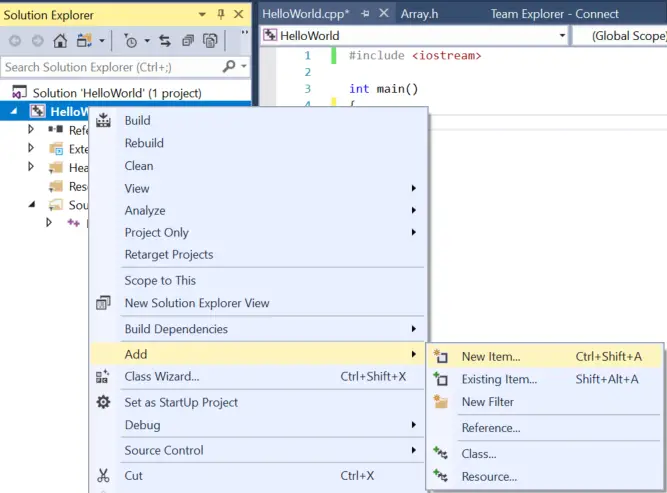Dev C++ Command Line Arguments
by admin
- Dev C++ Command Line Arguments To String
- C++ Command Line Argument Library
- C Command Line Arguments Argv
- Dev C Command Line Arguments Fps
- Dev C++ Command Line Arguments
An argument is the value given to the function when it is called such as: foo( a, b, c); where a, b, and c are the values. A parameter is the values that are inside the function while is being called. So my question is how does a person pass command line arguments to a program? /studio-one-45-vs-fl-studio-20.html.
- For information about switches that are related to VSPackage development, also see Devenv command-line switches for VSPackage development. Devenv switch syntax. Commands that begin with devenv are handled by the devenv.com utility, which delivers output through standard system streams, such as stdout and stderr.
- Possible Duplicate: What parameter parser libraries are there for C? What is the best way of parsing command-line arguments in C if the program is specified to be run like this: prog -a.
- $./a.out One argument expected. It should be noted that argv0 holds the name of the program itself and argv1 is a pointer to the first command line argument supplied, and.argvn is the last argument. If no arguments are supplied, argc will be one, and if you pass one argument then argc is set at 2.
The full declaration of main looks like this: The integer, argc is the ARGument Count (hence argc). It is the number of arguments passed into the program from the command line, including the name of the program.
Dev C++ Command Line Arguments To String
The array of character pointers is the listing of all the arguments. argv[0] is the name of the program, or an empty string if the name is not available. After that, every element number less than argc is a command line argument. You can use each argv element just like a string, or use argv as a two dimensional array. argv[argc] is a null pointer.
C++ Command Line Argument Library
How could this be used? Almost any program that wants its parameters to be set when it is executed would use this. One common use is to write a function that takes the name of a file and outputs the entire text of it onto the screen. This program is fairly simple. It incorporates the full version of main. Then it first checks to ensure the user added the second argument, theoretically a file name. The program then checks to see if the file is valid by trying to open it. This is a standard operation that is effective and easy. If the file is valid, it gets opened in the process. The code is self-explanatory, but is littered with comments, you should have no trouble understanding its operation this far into the tutorial. :-)
Quiz yourself
Previous: Functions Continued
C Command Line Arguments Argv
Next: Linked ListsDev C Command Line Arguments Fps

Dev C++ Command Line Arguments
Back to C++ Tutorial IndexAdvertising Privacy policy Copyright © 2019 Cprogramming.com Contact About